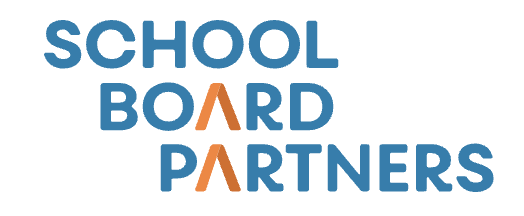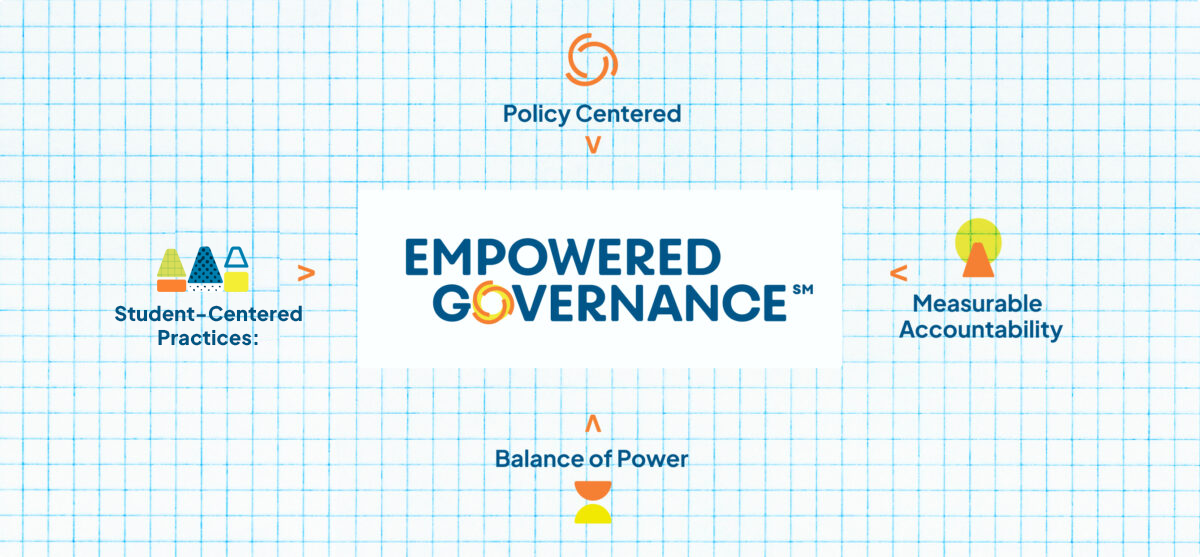policy toolkit
School Board Partners’ policy-centered model that reimagines how school boards lead—offering a more accountable, power-balanced, and student-focused approach to governance.
What is a School Board Governance Model?
A governance model defines the principles by which a school board operates—including its structures, roles and responsibilities, and systems of accountability. It's the foundation for how school boards function, how decisions get made, and ultimately, how well students are served.
Why it matters
School boards are among the most powerful forces shaping public education.
School boards approve budgets, hire and evaluate superintendents, set strategic direction, and determine what resources and opportunities students receive.
But too often, school board members are elected or appointed without access to clear, proven frameworks for how to govern effectively. Without structure and support, boards can become reactive, disorganized, or overly influenced by politics and adult-centered priorities.
Empowered Governance ℠ was created to change that.

The Empowered Governance Framework (SM) and Policy Toolkit were developed by current school board members with deep experience supporting and training their peers across the country. With 35+ model policies, case studies, practical tools, and research, the framework gives board members and superintendents what they need to lead with clarity, confidence, and impact—starting today.
Empowered Governance (SM) is the foundation of everything we do at School Board Partners. It reflects our mission, vision, and values—and it’s helping reshape what effective, student-focused school board leadership can look like.
Click below for the full EMPOWERED GOVERNANCE (SM) Model

Four Core Principles
Empowered Governance℠, is built on four essential principles that guide every policy and tool in the framework:
Policy-Centered Leadership:
School boards that lead through policy stay focused, consistent, and aligned with their mission.
Student-Centered Practices:
Every policy and decision is rooted in what’s best for students—not adult interests or political agendas.
Balance of Power:
Clear roles, defined responsibilities, and healthy relationships between the board, superintendent, and community.
Measurable Accountability:
Goals, data, and transparent metrics to track progress and improve results over time.

FREE POLICY TOOLKIT
Explore the Free Policy Toolkit
FOUR TOOLKITS WITH A MODEL POLICY, CASE STUDIES, AND ADDITIONAL RESOURCES
Become a Member to Access the Full Empowered Governance (SM) Toolkit
Join School Board Partners and gain full access to our Empowered Governance (SM) Toolkit—a comprehensive collection of more than 35 model policies, case studies, research, and practical tools designed to help school boards lead with clarity, purpose, and impact.

What’s Included
A robust collection of model policies. Each model policy is rooted in real-world experience and designed to be both practical and customizable for your local context.
-
Help boards set and track clear, measurable goals. These policies support rigorous oversight and transparent practices to drive continuous improvement and student success.
-
Ensure responsible financial oversight and transparency in managing public funds. These policies align district spending with strategic priorities and student needs.
-
Gain access to practical resources that support strategic planning, leadership development, and operational excellence—from onboarding templates to communications protocols.
-
Strengthen trust, inclusion, and accountability by deepening the connection between school boards and the communities they serve.
-
Ensure that all students and staff have access to resources, opportunities, and support. These policies promote inclusive practices and uphold transparency across district operations.
-
Provide a clear framework for how school boards can function effectively, remain focused on their core responsibilities, and create systems that support sound governance and better student outcomes.










